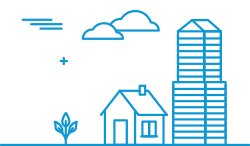
On September 4, Choo Mi-ae,
the chairwoman of the ruling
Democratic party, addressed
the theory of the land value tax
propagated by the late American Henry
George, one of the greatest thinkers and
journalists back in the 19th century. He
suggested a government tax that would
absorb the increase in the value of land
because such an increase was purely
‘natural’ and was a burden that must be
shared by the entire community. By so
doing, he argued that the revenues can be
used to invest in education and infrastructure
without the need for raising income
tax or corporate tax.
The reason Choo quoted Henry George
at the congressional opening session was
very clear: she wanted to introduce a tax
on properties, namely tax on land and
housing. She emphatically stated that a
new tax system on properties (also known
as Rent Reform 2017), will reinvigorate
Korea. Her speech brought huge backlash
not just in the political arena but in the
public sphere, as it means increased tax for
almost everybody who owns a house or
land. One opposition party called this system
to be obstructive, and another
denounced it as going against the wind of
the market. Considering that the legislation
in the National Assembly cannot be carried
out without the consent of the opposition
parties, there are many questions to be
answered before making a judgment on
the desirability of the property tax.
First, there is the question of whether it
is fair. It would be unfair to levy the tax for
property that has hardly changed over the
years. From 2000, the average price of
housing rose by 1.98 times, while GDP (in
KRW) increased by 2.84 times and
workers compensation by 2.82 times.
Even per capita GDP rose by 2.58-fold. So
it’s hard to argue that the price of housing
has risen to the level of speculation for the
last couple of decades. Of course there are
some cases where prices have gone up dramatically
now and then, but that doesn’t mean that the
entire housing market is subject
to this rapid rise.
The second and potentially stifling problem
is the possibility of tax resistance.
Income tax for the rich and corporate tax
for chaebols have already been raised substantially
by this government. In 2016,
people are paying about KRW 10 trillion
(USD 8.85 billion) for property taxes.
Either these people have to pay significantly
more or there needs to be new taxpayers
that will pay for the increased property
tax.
The third problem is whether the imposition
of property tax will lower the recent
hike in property prices. Of course that
depends on the scale of property tax;
namely, how much property tax rate will
be raised. Currently, those with houses
worth USD 1 million pay about USD
1,900 a year for property tax. The tax rate
stands at 0.5 percent, but there is a basic
deduction of USD 522,000 and an additional
20 percent (USD 200,000) of value
deduction. So, the effective tax rate on a
USD 1 million house is a mere 0.19 percent.
Now, if the government wants to
double or triple the effective tax rate, a tax
amounting to an additional couple thousand
dollars wouldn’t cause people to sell
their homes. It’s hard to believe that doubling
property tax would render a significant
fall in housing prices. If there really
are many people willing to sell their
homes because of higher property tax, it is
natural to believe that there are equally just
as many people not willing to buy houses
because of higher tax. If this is the case,
then there won’t be significant changes in
housing prices.
The fourth problem with property tax is
the transfer of higher tax on the tenants.
Most landlords will pass higher property
tax on to their tenants by raising the rent,
so it will not be the land owners but the
renters who are levied by the tax.
The last issue is related to the congressional
landscape. The ruling party’s seat (120 out 300) currently
occupies no more than 40 percent, and the congressional
procedurerequires at least 60 percent assent
approval for balloting a bill on the floor;
thus, any proposed property tax bill has little
chance to even make it to the ballot
with the consent of the opposition party.
When Henry George advocated the
Land/Location Value Tax (LVT) in the
1860s, land prices were rapidly rising due
to huge westward migration and discoveries
of gold and silver mines all across the
US. Railways, canals and highways were
being built on the vast uninhabited area. In
those years, most land owners were able to
receive incredibly high land rent, and
George’s idea of LVT on their profits were
more than just and fair to most Americans.
But now, especially in Korea, the housing
market is totally different. The recent
housing market boom since 2015 was
mainly due to extremely low interest rates
and government stimulation policies.
Under the previous government, the base
rate of the Bank of Korea was lowered five
times from 2.75 percent to 1.25 percent. In
addition to that, the central bank has
poured trillions of won following a quantitative
easing policy. So, for the purpose of
normalizing house prices, it is essential to
make interest rates return to normal levels,
which is believed to be 2 percentage points
higher than the current level.
